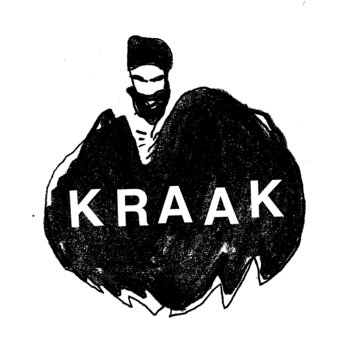
This column began in March last year as an experiment in the definition of “folk” music. While I did cover traditional folk releases, I was also interested in how different artists across the world were reshaping tradition, creating new ones, or disposing of it altogether. The result was a “Best Folk” column that often had nothing to do with folk in its narrow definition, but still had something strong to say about the relationship between people, music, and geography. This year, we’re renaming the column to “Ley Lines” to better reflect that curatorial vision. Each month will feature artists playfully deconstructing notions of tradition, imagining new connections, and representing marginal voices in folk music from around the world.
Chuquimamani-Condori
DJ E


Last year, Chuquimamani-Condori’s visual and sonic practices coalesced at MoMA PS1, their debut U.S. exhibition which included a performance with their brother Joshua Chuquimia Crampton as well as a symposium on indigenous and migrant justice. Triplet rhythms pulled from Aymara traditions like kullawada, saya, and huayñob animate samples of both traditional instruments and mechanical sonic fragments. “Forastero Edit” is tradition twice removed, a remix of their brother Joshua Chuquimia Crampton’s interpretation of an Aymara melody, not so much deconstructing the latter’s jagged guitar tones as retrofitting them with a panoply of noises. They bring together this percussive mélange with a deeply human tonality: “Return” begins with a recitation of “Ella amará a otro hombre” by lovelorn Cuban poet José Ángel Buesa, soon engulfed in a haze of synths.
Crizin da Z.O.
ACELERO


Working in the conventions of funk carioca, Crizin da Z.O. is a band that pushes the already-bursting sonic limits of a genre typically based on the explosive union between MCs and producers. Opener “O fim U” sets the mood with heavy metal growling, ear-splitting bruxaria synths, and machine-gun drumming from former Sepultura drummer Iggor Cavalera. The swaying tamborzão beat has become a rhythmic signifier of Brazil’s favelas, but here it’s a way through this labyrinth of jagged guitar riffs, industrial snares, and political agitation. Vocalist and lyricist Cris Onofre growls amidst the hard drum cacophony of “Domingo”: “Grammy latino ou luta armada?/ vai depender da disposição dessa garotada” (Latin Grammy or armed struggle?/ It will depend on the mood of these kids). It’s a promising start to the year for avant-garde label QTV, a glimpse into the future of Brazilian funk.
JWPaton
Submerged


Each of these ambient tracks by Yuin artist JWPaton is inspired by a different Aboriginal Australian poet. “Middens to Skyscrapers” calls to mind the incorporation of shell middens created by indigenous people over centuries into the concrete of present-day Australia’s skyscrapers, an observation made by Wiradjuri/Gadigal singer Akala Newman. Consisting of lo-fi loops, field recordings, and synths assembled into a seamless sonic tapestry, Submerged might be appreciated even without knowing the stories behind its titles.
Various Artists
Ulyap Songs: Beyond Circassian Tradition








Vinyl Box Set, 2 x Vinyl LP, Book/Magazine, T-Shirt/Shirt, Bag




Circassian folk music has seen quite a bit of interest in recent years, thanks in no small part to “punk ethnographers” Bhulat Khalilov and Timur Kodzoko of Tbilisi, Georgia, label Ored Recordings. Here, Khalilov and Kodzoko team up with Paris label FLEE to do what they do best: tap into rich cultural tradition and bring it into conversation with artists around the world. Accompanied by a 288-page book of photographs, essays, and poems, these festive songs from Ulyap, Adygea in the North Caucasus are already hybrid even before their reinterpretations by artists like Minami Deutsch (Tokyo), Emmanuelle Parrenin (Paris), and Misha Sultan (Kaş). Ulyap chanson, as Khalilov describes it, is an amalgamation of Adyghe traditions heard in its instrumentation (pshyne accordion, pkhaytsch rattles) and linguistic Russification, the latter bringing in lyrical themes of alcohol, sex, and other urban vices. A double LP behemoth, the first LP contains ethnographic field recordings of Ulyap chanson, while on the second LP those recordings are reworked: of particular note are Minami Deutsch’s ambient rendition of “Aminat,” contrasted with Jrpjej & Ben Wheeler’s noisy, overdriven cover of the same.
Various Artists
LEFT/FOLK VI: The World As It Is


On LEFT/FOLK VI: The World As It Is, Partum Nihil turns the lively Italian anti-fascist anthem “Bella Ciao” into an industrial dirge fitting for the twin duties of mourning and resistance in response to the continued genocide of Palestinian civilians in Gaza. Raising money for American Near East Refugee Aid (ANERA), the latest compilation from the L.A.-based neofolk label LEFT/FOLK is a small act of musical solidarity. These tracks tend toward the ethereal: Toulouse-based group Lisieux offers a strummy, reverb-soaked atmosphere pierced by the vocalist’s screams; while the driving rhythm and delay-heavy vocals on Madisonville band Peace Through Decay’s contribution lie somewhere between post-punk and neo-folk.
khc
소거로 (Me and My Den)
While the trope of the anonymous South Korean uploader has become familiar thanks to the likes of Mid-Air Thief and Parannoul, khc shows that there may be more musical gems waiting to be uncovered. 소거로 (Me and My Den) certainly bears traces of the former’s influence in cascades of electronically-processed acoustic guitar and elastic synths. But these songs are more restrained, opting for ambience and mystique in place of sweeping grandiosity. Other songs lean closer to the indie side of things: “죽은 척 kek” unfolds a bit like an Electron Sheep song with its layering of soft, disaffected vocals.
Daudi Matsiko
The King of Misery




Vinyl LP


Daudi Matsiko’s brittle voice carries with it the kind of quiet strength that comes after rebuilding a shattered heart. The Ugandan-British folk artist’s debut shines when Matsiko’s intimate, stripped-back arrangements convene with other tender sounds: a piano line here, a bowed bass there, the gravelly synth that signals “Guilt’s” gentle close. With understated one-liners (“Losing faith has got its perks”) and devastating couplets (“I know it’s fine that it won’t be okay/ I just don’t feel ready to leave), Matsiko’s songwriting channels the best of Sufjan Stevens while maintaining his own voice.
Frituuur Aconcagua
Frituuur Aconcagua




Cassette


An exchange between three experimental electronic artists across Latin America, Frituuur Aconcagua uses both synthesized and ancient instruments to create uncanny atmospheres. Nicolás Carcavilla (Chile), Pablo Picco (Argentina), and David Jarrín Zabala (aka Disposición Asoleada, from Ecuador) combine to create what the liner notes mysteriously dub “TRANSATLANTIC EXCHANGES OF ANCESTRAL SOUNDS AND TONES.” It’s as good a description as any: “Cenizas de Campanas” combines metallic resonances with disembodied, processed voices, while in “Alcantarillas a Pangoa” the airy rondador (Ecuadorean panpipe) blankets a cacophony of electronic test tones.
Hizbut Jámm
Hizbut Jámm




Compact Disc (CD)


Warsaw band Hizbut Jámm combines virtuosic talent from guitarist Raphael Roginski and kora player Noums Dembele, with Paweł Szpura on drums and Mamadou Ba bringing it all to life with his gruff Wolof vocals. “Caada Gi” is fiery psychedelia, Szpura’s spitfire snares dueling with Ba and Roginski’s riffs. Other songs (“Mbook yi,” “La Chose”) are on a mellower register, Dembele’s mystical kora arpeggios coming to the fore as Ba demonstrates the sweeter, melismatic side.
Nailah Hunter
Lovegaze




Vinyl LP


“I’m trying to create a place removed,” said L.A.-based harpist and singer-songwriter Nailah Hunter in a 2022 interview with KEXP. While Afrofuturist utopianism imagines the revolutionary potential of Black cybernetics, Nailah’s music draws upon worlds of high fantasy and medieval pastoralism as places of refuge and healing. Her voice wades through pools of reverb, buoyed by shimmering percussion on tracks like “Bleed.” And while some of these tracks are driven by beats that cut through the fog (“Lovegaze” and “Through the Din”), “Cloudbreath” demonstrates Hunter’s ability to create pure bliss from layering synths and harp.







